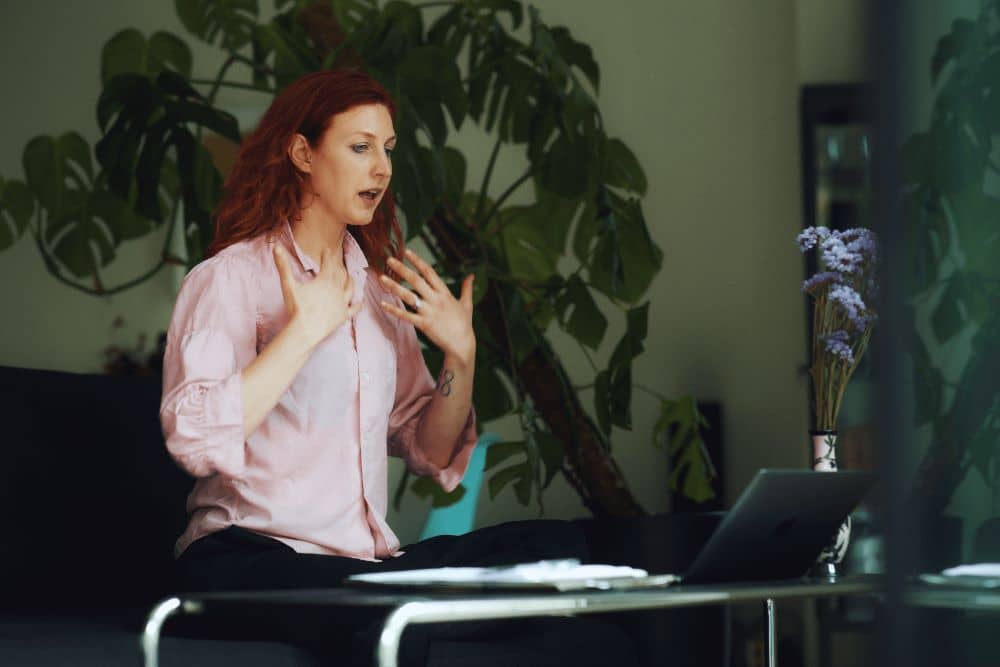Wildly Calm: Disarming Stress in Daily Life
Rewiring stress responses, living with greater ease and connection

Chronic stress or anxiety can feel like a loop of tension or overwhelm. It can manifest as looping thoughts, procrastination, tension or tightness in the body. It could appear with having difficulty falling asleep – or staying asleep – or perhaps feeling very tired even if you think you’ve had a long, deep sleep.
Stress states make it harder to retain information, experience joy and even affect the way we breath. All of which hijacks us from feeling full alive and free within ourselves.
The impact of persistent or chronic stress or prolonged anxiety has physical, emotional and relational impacts on ourselves and our lives.
By engaging the whole being—mind, body, emotions, and sensations—to understand, process, and release locked stress, healing becomes possible.
Who is Wildly Calm: Disarming Stress in Daily Life for?
This program is for anyone who
- is experiencing ongoing stress or anxiety
- notices they are quickly overwhelmed by seemingly small tasks or daily life activities
- wants to learn to cope better with stressful situations
- is curious on how to regulate their nervous systems
- is dedicated to living with greater ease, vitality, and empowerment.
How is the program structured?
Wildly Calm is a multi-faceted program that engages all parts of our being because stress doesn’t just live in our thinking minds.
- Understanding Stress – Learn how stress and habit loops are connected and what happens to your brain and nervous system in chronic stress or anxiety states.
- Regulation Tools – Develop a repertoire of simple practices to shift from stress to calm at any moment of your day.
- Body-Based Practices – Engage in a variety of simple movement and tapping into sensations to release tension.
- Creative Exercises – Discover and reflect via invitations for spontaneous writing and drawing (no “artistic talents” required :-))
- Building Capacity – Expand your ability to handle life’s ups and downs with more ease through this program.
Introduction to Wildly Calm: Disarming Stress in Daily Life.
From my private practice and workshop spaces to digital accessibility
Since 2011, I’ve been on my own healing journey, exploring what truly supports deep transformation. Somatic healing , movement and creativity were integral elements to lasting change that knowledge alone could never reshape. Through this process, I was drawn to professional training in integrative coaching, somatic bodywork, 5Rhythms dance, art therapy and emotional bodywork. The combination of training and my personal experience led me to hold a variety of signature classes, workshops and individual sessions.
Wildly Calm is a program that leans into an array of somatic tools and many practices I’ve offered clients over the years to support their own growth into states of aliveness and freedom.
Client Reflections on working together

What topics does this 28day program cover?
Wildly Calm: Disarming Stress in Daily Life is a 28day program with an option to sign-up for the first 7days for free (Week 1).
The program is broken into 4 weekly themes. Each day of that week gives more in-depth education and somatic, experiential exercises for that week’s theme.
- Week 1: Defining Stress and Reactive Stress Cycles
- Week 2: Understanding the Nervous System
- Week 3: Integrating via Body-Based Exercises
- Week 4: Expanding Capacity for Rest, Sensations and Play
What is the format of the program?
In order to disarm stress, this program supports a multifaceted approach. You will receive a variety of material throughout the program.
- Educational material via audio and downloadable presentations
- Meditations via audio files
- Movement via video with music and guidance
- Written material and worksheets
- Daily Affirmations
Samar also offers individual somatic coaching sessions
After a bad mental breakdown, two years of “talk therapy” and many years of struggling with depression related to stuff from my childhood, it was Samar who finally helped me unlock myself. I am closer to feeling like “me” than I think I’ve felt since I was a kid. She’s kind, humble, funny, gentle and caring. She taught me stuff about how the body works with psychology in a way I had never considered, and I’m not a spring chicken. I don’t think she even knows quite how talented and transformative she has the capacity to be for people who are struggling in the way that I was. Forever in your debt.
Matt

Integrative and Somatic Coaching in Berlin
Samar Linn is a Berlin-based coach with a focus on integrative and somatic (body-centered) approaches.
Samar’s experience with integrative coaching, spontaneous art expression and emotional bodywork gives her a unique framework through which to address chronic stress and anxiety, no matter which forms it takes or where people are on their journey.
She has extensive experience helping people who are struggling with less-commonly addressed addictions, such as drama or stress addictions, alongside providing essential support to people who are freeing themselves from mental and physical dependencies.
Samar offers coaching sessions, either online or face-to-face, from her practice in Berlin.
Online and in-person addiction coaching sessions
Online or face-to-face coaching sessions in Berlin for anyone who wants support when it comes to overcoming an addiction, be it physical or psychological.
Samar’s approach is informed by a range of practical theories and empathic knowing. She weaves a somatic approach with a personal understanding of how to support a re-wiring of the autonomic nervous system, helping people recalibrate their systems around the stressors in their lives.
If you think our Berlin-based stress, addiction recovery or codependency, and co-addiction coaching services are right for you, please get in touch to schedule a free initial consultation with Samar.
Samar also runs workshops and retreats for her signature project, KIX, on addiction recovery
Profound understanding of theory and practice of addictions, non-judgemental approach, trustful atmosphere, space for feelings, good balance between playfulness and seriousness, varied rituals and exercises and great music.
U

About KIX: Journeying out of addiction through dance and sharing
Designed by Samar herself, the KIX Project is a long-running program for anyone living with or curious about addictions, compulsive tendencies, or dependencies of any kind. Through a combination of group sharing and discussion, exercises, and dance, the KIX Project provides a safe and compassionate space to investigate and begin moving beyond addictions.
Its unique and specific approach is a special environment for people to feel less alone, and gain a deeper understanding and practical, actionable tools. Instead of focusing on just ‘an addiction’, the KIX project helps people understand and heal from the root causes.
Addiction, codependency, and co-addiction coaching FAQs
Find answers to our most frequently asked questions about addiction coaching.
Broadly, it involves helping people who are in active addiction, be it with substances or behaviors, as well as those who are in recovery from addictions.
In sessions, the addiction coach helps people understand the nature of their addiction, and how it has impacted their lives. They also help people develop strategies to overcome that addiction. Addiction coaching is sometimes conducted in groups and sometimes in one-on-one sessions or a combination of both.
Addiction coaches use a range of approaches and techniques depending on their own education, experience, and preferences. These may be cognitive, such as asking people to keep a journal or complete other forms of self-reflection to gain a better understanding of their situation, or somatic, such as using creative techniques like dance or art.
Codependency is not an addiction in the traditional sense, but it certainly involves a compulsive pattern of behaviors that, when examined, resemble some of the traits seen in addiction.
Characterized by an unhealthy dependence on another person, codependent people often have trouble maintaining healthy relationships because they’re so focused on taking care of someone else that they neglect themselves. Here too, we can see a similarity between codependency and addiction as the person’s focus is narrowed to an unhealthy level; on a person or a substance or behavior, respectively.
Mental Health America notes that people with codependency “often” form one-sided relationships that are “emotionally destructive.”
Yes, codependency is a learned behavior, and like other learned behaviors, it can be addressed and remedied through counseling.
Codependency coaching involves helping the codependent person uncover the root causes of their relationship patterns, how these manifest in their current relationships, and how to break free from the addictive elements of codependency.
For more information and a confidential chat to see if codependency coaching is right for you, please get in touch.
Co-addiction describes a relationship between two people whereby one person’s addiction becomes a problem for both parties involved. The co-addicted person does not necessarily have an addiction themselves, but rather has developed an unhealthy dependence on, or interest in their significant other or their activities.
Many addiction experts believe that some individuals are more prone to co-addiction than others. Co-addiction can be damaging, especially when the co-addicted person lets their own needs fall by the wayside when supporting or trying to take care of the addicted person.
- A compulsive or uncontrollable engagement with substances or behaviors that make the person feel good.
- A growing preoccupation with these.
- Prolonged and continued use or engagement despite any negative consequences.
That’s the short answer, the long answer is that there are many levels to addiction, and these may stretch all the way back to childhood as a creative, resilient way for a child to cope with difficult situations.
In terms of the body’s neurobiological response to addiction, researchers classify addiction as a disease of the brain and note three distinct stages or levels: binge and intoxication, withdrawal and negative affect, and preoccupation and anticipation.
There are differing viewpoints but most addiction experts believe that psychological and biological factors, along with other interrelated factors (including societal, genetic, and environmental) play a role in addiction.
Research tells us that there is a significant overlap between the neurological roots of drug ‘rewards’ and social rewards, for instance. National Institute on Drug Abuse (NIDA) research shows that when there’s an option, rats will choose social interaction before self-administered heroin or methamphetamine. But when those social interactions were punished, the rats turned back to drugs.
Whether psychology or biology plays a greater role than others in addiction is subject to much debate. The short answer is that addiction can be both psychological and biological, and in some cases, they work in tandem to create an unhealthy cycle, likely aided by a confluence of other factors, including environmental.
Evidence shows that online coaching has a positive effect on substance abuse addictions. In addition, online coaching may increase access to help, which greatly improves outcomes. As addiction may involve feelings of guilt or shame, online sessions offer a degree of anonymity that some people may find comforting, and which may help them speak freely about their situation.
